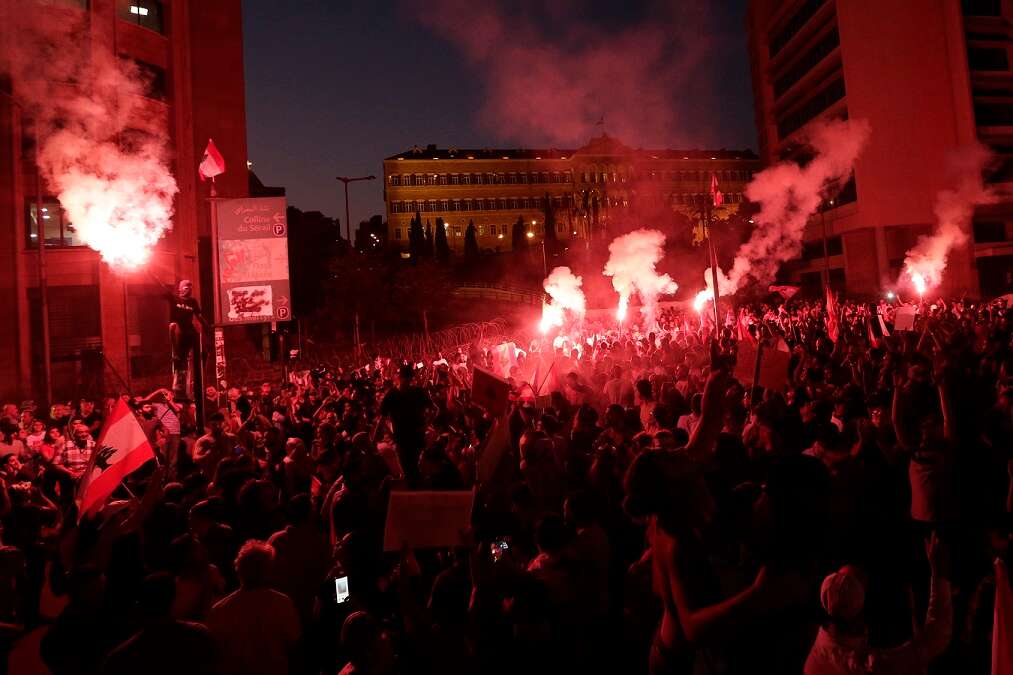by Prof. Eyal Zisser
If there is one thing that always trumps the desire for social justice and better economic policies it is the hatred for and fear of a rival tribe, which repeatedly leads to similar voting patterns and the same political result.
 |
| Anti-government protesters in Beirut, Lebanon, Oct. 21, 2019 | Photo: AP/Hassan Ammar |
The Lebanese economy is collapsing. First came the war in neighboring Syria, which shattered several major economic sectors, such as trade and tourism, and saw millions of Syrians seek refuge in Lebanon, something that has taken a toll on the country's fragile economy.
And if that wasn’t bad enough, Lebanon was then hit with US sanctions seeking to stifle Hezbollah financially.
Some causes for the protest are rooted deeper and stem from the younger generation's revulsion of the old, corrupt ways characterizing Lebanese politics, which seem to be governed by a handful of politicians and their families, whose behavior is reminiscent of the Mafia's glory days.
But the protest and unrest will not lead Lebanon anywhere, nor will they breed a new political horizon. As always, Lebanese youth's anger will be outweighed by their loyalty to the older generation's leaders and with it to the familial, tribal, and religious foundations of their society and politics – even if the latter is rotten to the core.
Tribal and sectarian animosities have been poisoning Lebanon for decades, perpetuating its existence as a failed state subject to the whims of corrupt crime bosses.
 |
| Anti-government protesters light flares and shout slogans against the Lebanese government during a protest in Beirut, Lebanon, Monday |
In Lebanon, it makes little difference whether the government falls, as new elections are unlikely to herald any significant political change.
There was a time when this inherent chaos was the source of Lebanon's strength as it prevented a situation by which the country could fall prey to a dictator and afforded its people relative freedom and a flourishing economy.
But these days have passed, and the reality in which there are no robust state institutions has birthed anarchy and a failed economy.
The mass protests sweeping through Beirut are a thorn in Hassan Nasrallah's side. After 20 years of cultivating growing political power, Hezbollah and Nasrallah are an inextricable part of the system. This means he cannot escape responsibility for the situation or blame others, especially when Hezbollah's activity is one of the main causes of Lebanon's distress.
The organization's contribution to the undermining of state institutions is well known, but the fact that it insists on locking horns not only with Israel but also with the Gulf states and the United States is proving to be an adventure Lebanon is unable to weather.
For this reason, Nasrallah has rallied to Lebanese prime minister Saad Hariri's – his nemesis – side and has called on cooler heads to prevail.
The Lebanese government will most likely survive the current wave of protest, but it will have nothing to offer its agitated people but a bleak future.
Prof. Eyal Zisser
Source: https://www.israelhayom.com/2019/10/23/intensifying-chaos-in-lebanon-leaves-little-hope-for-actual-change/
Follow Middle East and Terrorism on Twitter
No comments:
Post a Comment